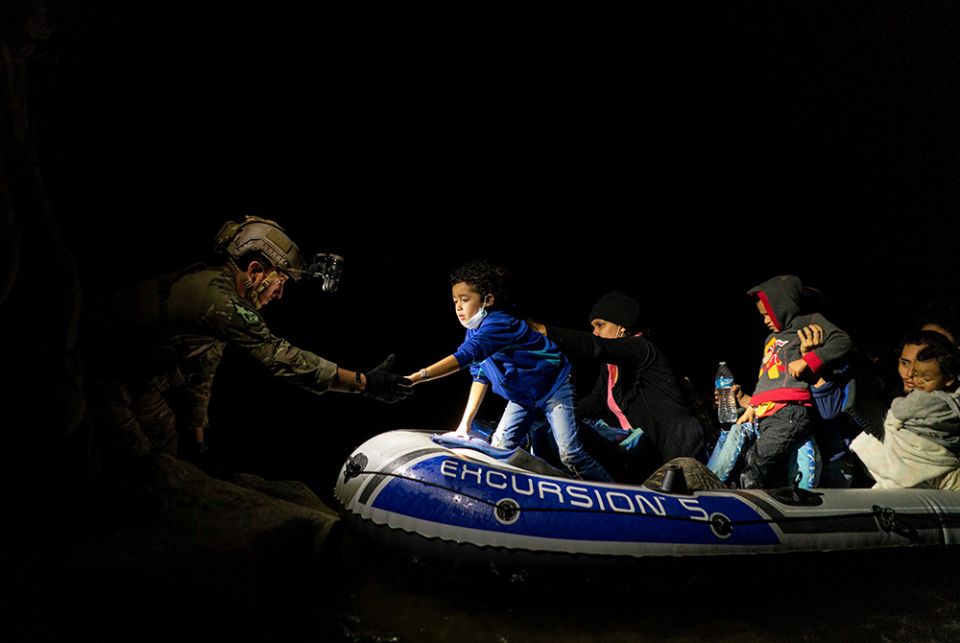What Pope Francis can Teach Us about
How to Respond to Migrants
~ by M.T. Davila, National Catholic Reporter
Once again our attention is at the U.S. – Mexico border. Increased news media attention to the situation of minors in immigration detention centers highlights challenges brought on by new waves of people, many of them unaccompanied minors, seeking to escape profound violence and the ongoing impacts of natural disasters and the pandemic at home.
President Joe Biden has assigned a new role to Vice President Kamala Harris to oversee conditions at the border and to engage in diplomatic efforts with nations of origin to understand the major push factors leading migrants to undertake a perilous journey to the U.S. Here responsibilities include shaping diplomacy and coordinating aid efforts to more effectively address the situation.
Welcome, protect, promote, integrate. Under Pope Fra ncis these four verbs have become the rubric shaping pastoral, ethical and political recommendations for responses to migrations globally that faithfully witness to Christian discipleship and respect the human dignity of peoples on the move.
ncis these four verbs have become the rubric shaping pastoral, ethical and political recommendations for responses to migrations globally that faithfully witness to Christian discipleship and respect the human dignity of peoples on the move.
The vulnerability of migrants, and the responsibility of receiving nations to tend to them, are privileged in Francis’ most recent encyclical, Fratelli Tutti. Altogether, migrants and their plight are mentioned over 30 times throughout the document, equal in concern only to the poor. Francis proposed that welcoming, protecting, promoting and integrating migrants are key markers of truly human fraternity and friendship. Because of this, the document could also be considered a treatise on welcoming the stranger, a map for nations an societies to better understand how to respond to this most critical sign of the times.
While every wave of migrants at the border is often presented by the media and political pundits as a crisis and a threat to our resources and security, our common humanity ought to ground our responses. Fratelli Tutti insists, “All individuals, whatever their origin, know that they are part of the greater human family, without which they will not be able to understand themselves fully. …No one people, culture or individual can achieve everything on its own.”
Our current moment challenges us as to how best to respond to the call to welcome, protect, promote and integrate those who arrive at our borders seeking safety in a land not their own. Pope Francis asks us to recognize them not as usurpers of unearned goods, but as essential to the vary fabric of who we are, a critical piece of our self-understanding, and contributors to the common good.
Biden’s language around this moment in our story of immigration echo some of the essential principles of Catholic Social Teaching. It is imperative that all the faithful in the U.S. carefully consider the map laid out for us by Pope Francis when considering how to transform a broken immigration system that makes vulnerable people, especially children, even more vulnerable.
